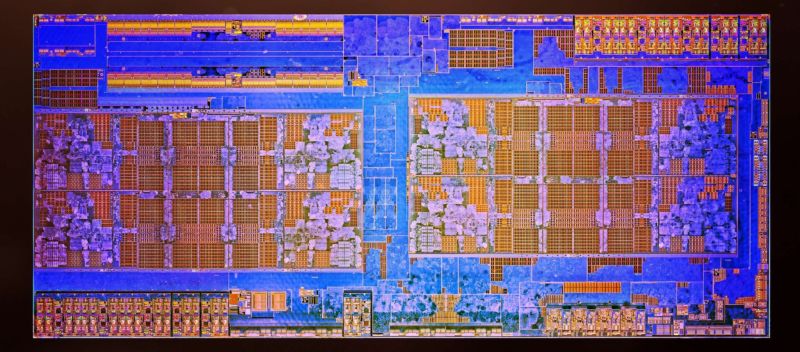
Microsoft will soon be offering virtual machines in its Azure cloud service based on AMD’s Epyc processors.
The growth of the cloud computing market has, until now, been a success story for Intel’s Xeon server processors, as the rise of cloud computing came at the same time as Intel was particularly dominant in the x86 processor market. Intel’s traditional competitor, AMD, had processors intended for server markets, but its uncompetitive performance meant that the cloud space was ceded to Intel.
But 2017 has been a turning point for AMD. A new family of chips built around its Zen architecture has offered Intel a level of competition it hasn’t experienced since the early 2000s. In the desktop space, AMD’s Ryzen processors offered a viable alternative to Intel’s chips. Meanwhile, in the server space, the new Epyc processors threatened to do the same for Xeon.
Epyc, aimed at one- and two-socket systems, isn’t necessarily faster than comparable Intel Xeons, but its mix of features—lots of threads and cores, and more memory and I/O bandwidth than Intel’s latest Xeon offer—along with Intel-level performance make it a serious competitor in the server space.
As today’s announcement shows, that server-space appeal extends to the cloud. The initial Epyc-in-Azure offering will be L-series virtual machines. L-series virtual machines are a range of VM configurations for storage-intensive applications; they come with relatively large amounts of locally attached SSD storage and are aimed at applications such as NoSQL and SQL databases. The current L-series VMs use Intel Haswell processors, but the focus on I/O corresponds to Epyc’s strengths.
Epyc servers built to Microsoft’s open source hardware design, “Project Olympia,” were shown earlier this year. A production-ready version of that hardware is now being used for L-series version 2 virtual machines. L-series version 2 will use Epyc 7551 processors. That’s a 32-core, 64-thread processor with a base clock of 2GHz, an all-core boost of 2.55GHz, and a maximum boost of 3GHz. Four VM configurations will be available: eight virtual CPU cores, 64GB RAM, and a single 2TB SSD; 16 virtual cores, 128GB RAM, and two 2TB SSDs; 32 virtual cores, 256GB RAM, and four 2TB SSDs; and 64 virtual cores, 512GB RAM, and eight 2TB SSDs. Version 1 VMs start at $228.39 per month. We imagine the new Epyc version 2 VMs to be comparably priced.
AMD assures us that this is just the beginning, too. Other cloud companies will announce Epyc systems, probably before the year-end. While there’s nothing specific to announce, we can imagine that other classes of VM—large memory systems, for example—will also follow down the road.

